
CRM Consulting Services
for Higher Education
Streamline educative management, boost student engagement,
and optimize academic processes with our tailored CRM solutions
trusted by top institutions to drive success in higher education.
Why is CRM Software Crucial for the Education Sector?
Educational management solutions are crucial for the higher education because they streamline student management, enhance communication, and personalize engagement, improving recruitment, and overall operational efficiency.
Educational Institutions Rely on Our CRM Expertise
Searching for the Best CRM Higher Education Software
Prospective student engagement
It is essential to have a CRM for higher education with effective tools for engaging prospective students.
Integration with existing Systems
Ensure the CRM integrates effectively with other software systems to keep student data up-to-date.
Effective Communication Tools
Choose a CRM that provides options to enhance communication across multiple channels.
Hassle-free Enrollment Management
Enhanced enrollment management features can improve the efficiency of educational institutions.
Student Retention CRM Solutions
Data analysis tools can identify at-risk students and implement strategies to reduce the University’s dropout rates.
Reliable Databases Protection
Look for a CRM that offers encryption, regular updates, and compliance with privacy regulations.
Benefits of Educational Management Solutions
Enhancing Student Experience
Higher education CRM software improves the student experience by simplifying the registration process. It provides relevant information based on each student’s profile and academic path. Institutions can automate regular emails to deliver important details about events, resources, deadlines. Schools can customize the student journey using a Customer Journey Platform (CJP).
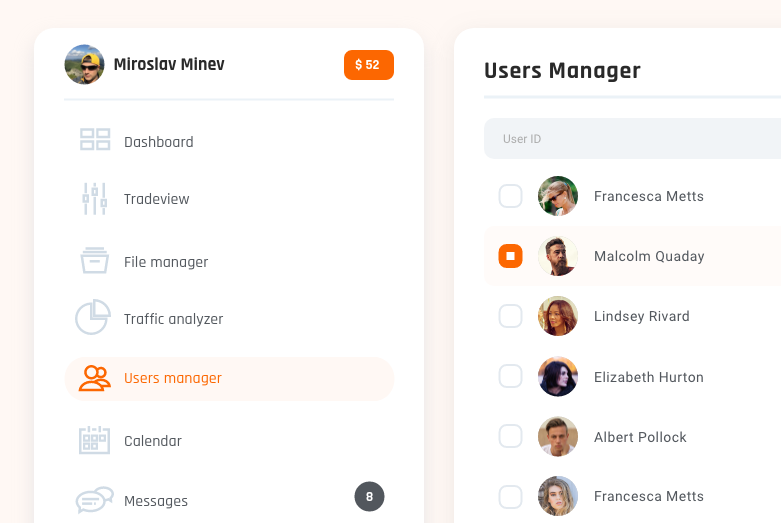
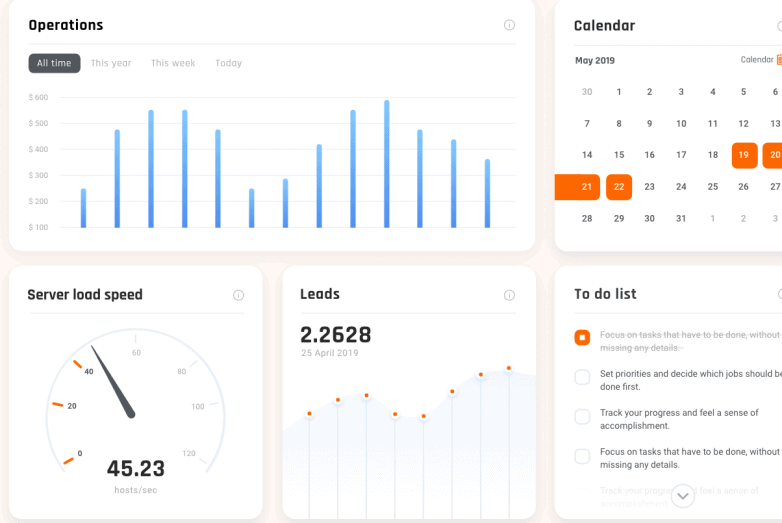
Getting a Head Start to Success
To help students succeed during their first year of school, we can identify patterns of struggle and use tools to assess engagement and coaching needs. Recommending mentorship programs and implementing Customer Relationship Management (CRM) systems can create better pathways for academic adjustment in higher education.
Effective Student File Management
The student management system centralizes all data, including personal information, academic records, and communications. This delivers a complete view of each student’s profile for quick and efficient support. The system tracks interactions to enable streamlined student services and data management from one CRM for educational institutions.
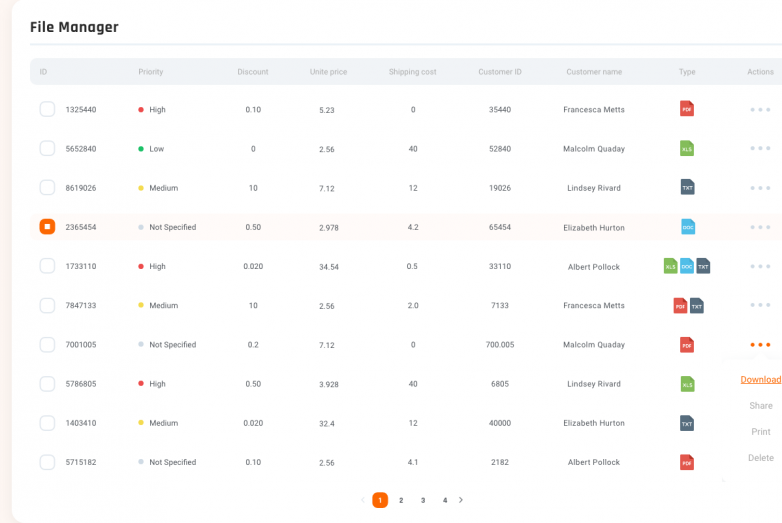
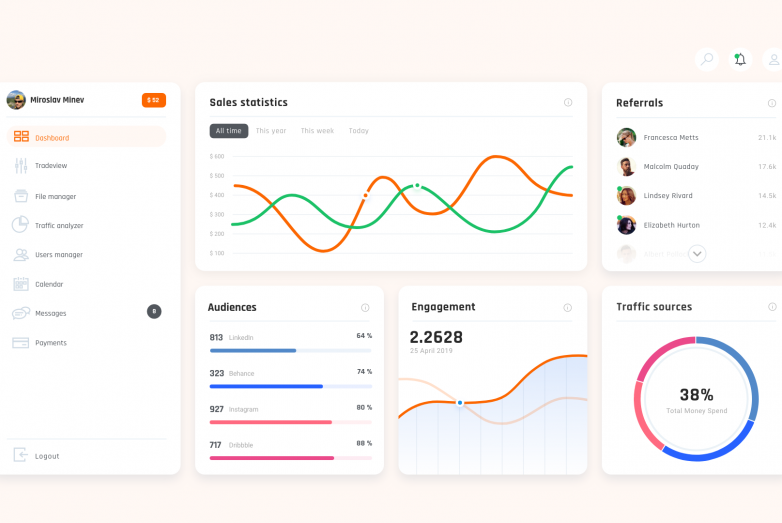
Simplifying Standardization Process
CRM provides deeper integrations into back-end systems for a harmonized view of the faculties and cross-faculty information sharing. Incidentally, you can manage information and documentation requests centrally rather than using a faculty approach.
Expanding Opportunities for Students
Boost your ROI by simplifying international recruitment initiatives and managing student exchange programs with other universities. Track success rates and monitor vital aspects of agreements, including procedures, timelines, student records, faculty staff, and travel arrangements.
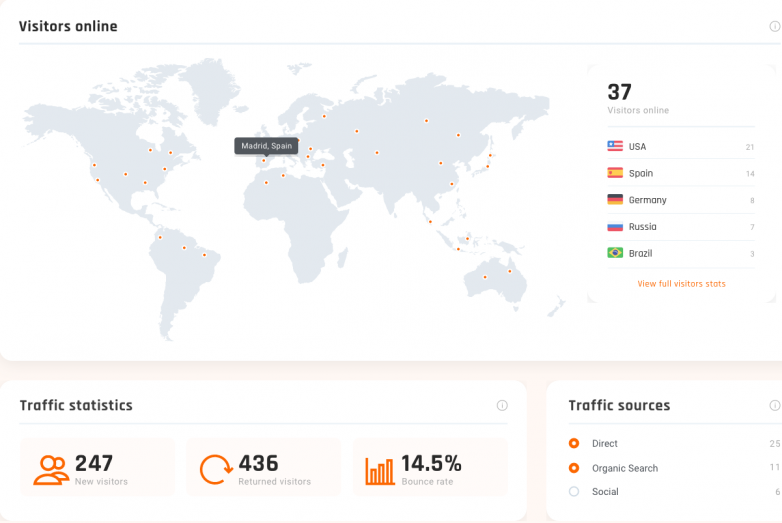
Clients’ Warm Words about Our CRM Consulting Services

“Thanks very much for your great support on this project. It was a pleasure working with you.”
"Thanks Olivier! A big thanks on turning around solutions so quickly in the last couple of weeks for the slight issues we discovered. The team went live with the safety abroad system on Wednesday and I couldn’t be happier!"


Experience the Top Features of CRM Software Tailored for Educational Institutions
Contact us today to schedule your free consultation
Best Education CRM for High Schools and Universities
Educational institutions work to improve student satisfaction levels as they maintain efficient management of sophisticated administrative systems. Higher education institutions face mounting pressure on their faculty staff and administrators so they need essential solutions for operational streamlining along with student engagement improvement.
These platforms serve all phases within the student experience beginning with admissions and ending with enrollment and progressing through student retention and academic counseling and eventually handling alumni activism.
Customer relationship management in higher education adoption enables colleges to deliver individualized outreach superior student support system architecture and enhanced workflow procedures for a more active educational platform. CRM systems generate helpful data that helps educational institutions make better choices and monitor performance indicators to reach superior institutional performance. A philosophy shift in the operational model of educational institutions takes place through CRM solutions because educators use these tools to improve recruitment methods while engaging students and connecting with alumni.
What is CRM in Education?
Education institutions use CRM software systems to optimize their relationships with students as well as parents alumni and staff members. These digital platforms gather multiple data sources into a single location where institutions execute efficient communication flows combined with automated operations while getting improved decision capabilities. The implementation of CRM for higher education software allows educational institutions to boost all parts of the student journey beginning with initial queries and ending with post-graduation student interaction.
CRM for higher education succeed through their capability to monitor student actions which enables institutions to provide individualized support as well as proactive services to students. Whether schools use automated workflows or not the admissions process remains straightforward due to manual task reduction and the systems ensure the departments work together smoothly.
Higher education CRM systems contribute significantly to both alumni relationship management and institutional fundraising processes above student recruiting and retention systems. A complete database of ex-students allows educational institutions to deliver individualized outreach systematically thus enabling more optimal donor tracking while organizing networking gatherings. The analytical capabilities of CRM systems allow institutions to understand student actions which leads them to improve their operational performance through strategic refinements.
The educational transformation brings CRM systems into vital importance for institutions that aim to improve student experiences while boosting administrative efficiency as well as developing enduring stakeholder relationships.
The Importance of CRM for Higher Education
Different issues affect higher education institutions which include admission process complexity as well as student achievement and active alumni networking. A CRM system resolves current challenges through its ability to consolidate information together with procedural automation along improved communication methods. The following are fundamental advantages of CRM for higher education software implementation at colleges and universities:
- Streamlined Admissions Processes
Both institutions and prospective students struggle during admissions due to numerous contact points along with required documentation and communication interactions. CRM software manages application tracking through automation which helps students submit essential documents on time to minimize delays and reach all their targets. The systematic nature of this efficiency enhances both application rate conversions and substantially improves candidate interaction quality.
- Enhanced Student Engagement
A strong connection between students and educators stands as a fundamental factor that improves student loyalty and grading performance. CRM systems let educational institutions create customized outreach approaches that use student preferences education progress and participation data. The use of CRM systems enables automated communication functions that produce a smooth delivery of tailored academic support messages while achieving better connections between staff and students. These platforms enable advisors and faculty to foresee academic risks with students and make timely interventions for both retention improvement and student satisfaction increase.
- Data-Driven Decision Making
The overwhelming amount of data held by educational institutions becomes difficult to develop meaningful insights unless institutions use proper tools for analysis. CRM software delivers sophisticated analysis that follows student behavioral patterns as well as application demand patterns academic enrollment trends and institutional achievement levels. The data allows administrators to locate weaknesses so they can enhance marketing activities along with making goal-oriented decisions based on quantitative data.
- Strengthened Alumni Relations and Fundraising
CRM systems maintain comprehensive databases that feature detailed alumni records from their past donations their participation in events and their recorded interaction activity. Through the stored information institutions can create specialized outreach initiatives that present personalized content to students invite their participation in various events and donate to their programs. University segmentation of alumni through their interests and giving history helps enhance fundraising results while creating durable bonds between institutions and their former students.
- Improved Operational Efficiency
Staff members who have administrative roles handle various tasks that include handling student questions and organizing appointments together with managing organizational data. Through automation of routine operations CRM software enables workers to dedicate their time toward strategic activities instead of manual duties such as appointment booking attendance monitoring and document maintenance. CRM systems enable improved productivity reduced errors and improved department coordination because they automate administrative tasks.
Key Features of CRM Systems for Higher Education
Institutions should select a higher education CRM by focusing on system features that support their organizational objectives. Here are some essential capabilities:
- The right CRM system permits higher education institutions to divide their potential student base utilizing geographic data academic field interests and contact history insights. The system enables strategic outreach to students under specific criteria.
- The system enables optimal performance by uniting through integration protocols with both Student Information Systems (SIS) and Learning Management Systems (LMS) along with financial software applications.
- Through personalized communication, students become more engaged and satisfied because their profiles guide the outreach.
- System users gain access to cloud-based solutions thanks to mobile interfaces that operate across all platforms.
Benefits of CRM Software for Educational Institutions
Customer Relationship Management (CRM) systems have become essential tools for educational institutions, streamlining processes and enhancing communication across the entire student journey. From recruitment to alumni engagement, a crm software for education ensures institutions provide a seamless and personalized experience. Let’s explore how CRMs revolutionize education management.
1. Improved Student Lifecycle Management
A CRM system creates a centralized database that tracks every student's journey—from the initial inquiry stage to post-graduation. It provides a 360-degree view of their academic progress, extracurricular involvement, financial transactions, and interactions with faculty. By maintaining detailed records, institutions ensure that no important touchpoint is overlooked, enhancing both student experience and institutional efficiency.
2. Enhanced Communication
Effective communication is critical in education, and CRMs facilitate seamless, multi-channel engagement. Institutions can send automated messages via email, SMS, social media, and even mobile apps to keep students, parents, and staff informed. Personalized communication ensures that students receive relevant updates, such as application status, course reminders, or financial aid deadlines, creating a more connected and responsive academic environment.
3. Efficient Enrollment Processes
Admissions can be a complex process involving multiple steps such as application submission, document verification, interviews, and status updates. A CRM automates these tasks, reducing manual effort and ensuring smooth workflow management. Prospective students receive timely notifications, while admissions teams gain real-time insights into application progress, leading to a more efficient and user-friendly enrollment experience.
4. Retention Strategies
Student retention is a key concern for educational institutions. CRMs analyze data on academic performance, attendance, and engagement to identify at-risk students early. By detecting patterns that indicate potential dropouts—such as declining grades or lack of participation—institutions can implement personalized interventions, such as academic counseling, mentorship programs, or financial aid assistance. This proactive approach significantly improves student retention and success rates.
5. Alumni Engagement
Maintaining strong connections with alumni is vital for institutions looking to enhance their reputation, build a robust network, and generate fundraising opportunities. CRMs help universities segment alumni based on interests, location, and engagement levels, enabling targeted outreach campaigns. Whether inviting graduates to networking events, soliciting donations, or sharing university updates, a CRM ensures alumni feel valued and connected to their alma mater.
6. Global Recruitment
For institutions seeking to attract international students, a CRM simplifies the complexities of global recruitment. It enables institutions to manage visa processes, track applicants from different countries, and implement cultural integration programs. With a CRM, universities can customize recruitment strategies based on geographic trends, ensuring a smooth experience for international students while expanding their global presence.
Choosing the Best CRM for Higher Education
Selecting the right CRM system requires careful consideration of several factors:
- Identify Institutional Needs
Before diving into CRM options, institutions must define their specific goals. Is the primary objective to streamline student recruitment processes, improve retention, or enhance alumni relations? By identifying your institution's priorities, you can select a CRM that addresses your most pressing needs. It's also important to assess current workflows and identify pain points such as manual data entry, communication inefficiencies, or delayed response times. A CRM can automate processes, reduce errors, and create a more streamlined and effective operation.
- Stakeholder Involvement
The decision to implement a CRM should not be made in isolation. Involve key stakeholders from various departments, such as faculty, administrative staff, IT teams, and even students, to ensure the system meets the needs of everyone involved. Faculty might need features for tracking student performance, while administrative staff could prioritize a more efficient admissions workflow. Including diverse voices helps guarantee that the chosen CRM will be comprehensive and functional across the entire institution.
- Ease of Use
A CRM's success heavily depends on its user adoption. For a system to be effective, it must be easy for staff to use. Opt for a CRM with an intuitive interface and minimal learning curve. The last thing you want is a complicated system that discourages staff from using it. A user-friendly CRM ensures that staff can focus on student engagement rather than spending excessive time on training and troubleshooting.
- Scalability
Institutions evolve over time, and their CRM needs will change as they grow. When choosing a CRM, it’s essential to consider its scalability—will the platform accommodate future growth without compromising performance? For instance, if an institution plans to expand its student body or increase international recruitment efforts, the CRM should be able to handle higher volumes of data, communication, and complex workflows as the institution scales.
- Vendor Reputation
Not all CRM providers are equal. Research vendors who have a proven track record of success in implementing CRM systems in higher education. Look for case studies, client testimonials, and reviews to gauge their experience and reliability. A vendor with experience in the education sector will understand the unique challenges institutions face and can offer specialized solutions that are tailored to the sector.
- Budget Considerations
Implementing a CRM for private schools involves more than just the upfront cost of the software. You need to factor in the total cost of ownership, which includes setup fees, training expenses, subscription fees, and ongoing maintenance costs. Make sure the CRM in higher education fits within your institution’s budget while still meeting your essential requirements. It’s also important to understand any hidden costs, such as potential charges for extra storage, advanced features, or technical support.
- Security & Compliance
A CRM in education must prioritize the security of sensitive student data. This is especially critical in the U.S., where regulations like FERPA (Family Educational Rights and Privacy Act) set strict rules on how student data must be handled. Ensure the CRM vendor complies with these regulations and other local data protection laws (such as GDPR in Europe). Look for features like encrypted data storage, secure authentication methods, and clear data access policies to protect student information and build trust with your institution’s stakeholders.
Top Use Cases of CRM Software in Education
CRM software has transformed how educational institutions manage interactions, streamline operations, and enhance engagement. By automating tasks and centralizing data, CRMs help universities and colleges operate more efficiently while improving the overall student experience. Here are the top use cases of CRM software in education:
- Student Recruitment
One of the primary functions of CRM in higher education is to optimize student recruitment. CRM systems allow admissions teams to track leads efficiently by automating communication workflows and providing real-time insights into applicant status. Institutions can segment prospective students based on interests, demographics, and engagement levels, enabling personalized outreach through email, SMS, and social media campaigns. Automated follow-ups, chatbots, and application tracking further enhance the admissions process, improving enrollment rates.
- Event Management
From open houses and college fairs to virtual orientation sessions, events play a crucial role in student engagement. CRM platforms simplify event management by handling invitations, registrations, reminders, and post-event follow-ups. Institutions can track attendance, monitor engagement metrics, and use collected data to refine future event strategies. Additionally, CRMs enable seamless coordination across departments, ensuring that all stakeholders are aligned in event execution.
- Academic Advising
Student success depends on effective academic advising, and CRM systems empower advisors with comprehensive student profiles. By integrating academic history, course preferences, and extracurricular activities into a single dashboard, CRMs help advisors offer personalized guidance on course selection, career planning, and support services. Early-warning systems can also identify students who may be struggling academically, allowing institutions to intervene before issues escalate.
- Fundraising Campaigns
Alumni relations and fundraising are critical for institutional growth, and CRM software enhances donor engagement efforts. Development offices can use CRM for education to segment donor databases and create targeted fundraising campaigns based on alumni interests, donation history, and engagement levels. Automated communication tools ensure personalized outreach, while real-time analytics help institutions track campaign performance and optimize fundraising strategies for higher contributions.
- Compliance Reporting
Educational institutions must adhere to various accreditation requirements, financial regulations, and compliance standards. CRM for education software simplifies compliance reporting by automating data collection and record-keeping. Institutions can generate detailed reports on enrollment figures, student progress, financial aid distribution, and audit requirements, ensuring accuracy and efficiency. This reduces administrative workload while maintaining transparency and regulatory adherence.
Emerging Trends in Education CRMs
As technology continues to advance, CRM in higher education is evolving to offer more sophisticated and intelligent solutions. These innovations are enhancing student engagement, optimizing administrative efficiency, and improving data security. Here are some of the most impactful technological advancements shaping the future of CRM for education:
- Artificial Intelligence (AI) and Predictive Analytics
AI-powered predictive analytics are revolutionizing how institutions anticipate student needs and behaviors. By analyzing historical data, AI can forecast enrollment trends, identify at-risk students, and recommend personalized interventions to improve retention rates. Institutions can also use AI to optimize marketing campaigns, ensuring that outreach efforts target the right prospective students at the right time.
- AI-Driven Chatbots
Chatbots are becoming an essential feature in modern CRM for education systems, providing instant, 24/7 support to students, parents, and faculty. These AI-driven assistants can answer frequently asked questions about admissions, financial aid, course offerings, and campus events. By automating routine inquiries, chatbots free up staff time while ensuring prospective students receive quick and accurate information, enhancing their overall experience.
- Gamification for Engagement
Gamification is gaining traction in higher education as institutions seek innovative ways to engage students. By incorporating elements like points, badges, leaderboards, and rewards into recruitment and retention strategies, CRM for education systems can boost participation and motivation. For example, prospective students could earn points for completing application steps, while enrolled students might be rewarded for engaging in academic advising sessions or extracurricular activities. Gamification fosters a sense of achievement and community, improving student satisfaction and institutional loyalty.
- Blockchain Technology for Academic Credentials
Blockchain technology is transforming how institutions manage and verify academic records. By securely storing diplomas, transcripts, and certifications on a blockchain, universities can enhance transparency and eliminate credential fraud. This innovation allows students to share verified academic achievements with employers or other institutions instantly, reducing administrative burdens and improving trust in academic credentials.
Academic institutions heavily depend on CRM for education solutions to maintain digital competitiveness in their dynamic environments. The systems provide functionality beyond basic data management because they enable institutions to optimize operations while improving communication by fostering relationships with all their participants. Institutional staff performs better strategic work thanks to process automation which simultaneously reduces administrative inefficiencies.
A CRM for education that precisely aligns with an institution's unique requirements leads to future success when the organization seeks to obtain premier talent, generate superior student services, or solidify alumni bonds. Education institutions become more adaptable and efficient through the correct CRM implementation enabling them to maintain their student-centered approach as educational management develops.
Frequently Asked Questions (FAQ)
for Customer Relationship Management in Higher Education
What Is CRM in Education, and How Does It Benefit Educational Institutions?
Customer Relationship Management Education (CRM) systems are tools designed to manage and improve interactions between educational institutions and their students, parents, alumni, and staff. What is CRM in education? It is a platform that centralizes communication, streamlines admissions, and enhances engagement. By using CRM for educational institutions, schools and universities can track prospective student journeys, automate communications, and analyze data for better decision-making. The best CRM for education offers features such as lead management, personalized outreach, event tracking, and alumni engagement tools. These solutions foster stronger relationships, improve student satisfaction, and boost recruitment efficiency. With CRM, institutions can efficiently manage every stage of the student lifecycle, from inquiry to enrollment and beyond. In short, a CRM system helps educational organizations deliver exceptional, data-driven experiences.
How Do I Choose the Best CRM for Education?
To select the best CRM for education, start by identifying your institution’s needs—whether it’s student recruitment, alumni relations, or streamlining admissions. Look for education CRM systems that offer features like automation, reporting, and personalized communication to improve engagement. Conduct a higher education CRM software comparison to evaluate platforms based on scalability, ease of use, and integration with existing tools. Key factors include cloud-based accessibility, user-friendly dashboards, and robust analytics. Additionally, ensure the CRM aligns with your institution’s budget and long-term goals. Top educational management solutions can centralize student data, automate processes, and enhance collaboration among departments. Lastly, seek vendors that provide support, training, and implementation assistance to ensure a smooth rollout. By carefully evaluating options, you’ll identify a CRM that fosters efficiency and growth across your educational organization.
What Are the Key Features of CRM Software for Education?
CRM software for education is designed to enhance student engagement, streamline administrative processes, and improve communication across institutions. A CRM for education centralizes data, providing a complete view of students, alumni, and prospects, enabling personalized outreach and efficient follow-ups. Key features include lead management, automated workflows, and campaign tracking, ensuring effective student recruitment. Higher education CRM systems often offer advanced tools for enrollment management, event organization, and communication channels tailored for universities and colleges. An education CRM supports data analytics to track student success and optimize retention strategies. Additionally, integration with learning management systems (LMS) ensures seamless collaboration between departments, improving operational efficiency. Overall, CRM software for education empowers institutions to foster stronger relationships, automate routine tasks, and enhance the student lifecycle, from recruitment to alumni engagement.
Can CRM Improve Student Retention in Higher Education?
Yes, CRM software for higher education plays a critical role in improving student retention. By centralizing data and automating communications, a CRM in higher education helps institutions track student progress, identify challenges, and provide timely support. Tools like student engagement software allow universities to foster personalized interactions, ensuring students feel connected and supported throughout their academic journey. The best CRM for universities integrates features such as automated reminders, progress tracking, and targeted communication, enabling proactive outreach to at-risk students. This personalized approach not only enhances engagement but also significantly reduces dropout rates. With a robust CRM in place, higher education institutions can deliver a seamless experience that boosts satisfaction and retention. By adopting the right CRM software for higher education, universities can build stronger relationships, improve outcomes, and ultimately ensure long-term student success.
What Makes a University CRM Effective for Managing Admissions?
An effective CRM for higher ed streamlines the admissions process by providing tools that enhance communication, track applicant progress, and automate tasks. Higher education CRM solutions enable universities to manage inquiries, applications, and follow-ups efficiently, ensuring no prospective student is overlooked. By integrating data from various sources, these platforms offer a 360-degree view of each applicant, helping institutions make informed decisions. CRM systems for higher education also support personalized engagement, enabling tailored outreach that aligns with student needs. These educational management solutions improve collaboration among admissions teams, reduce manual work, and ensure faster response times. Ultimately, an effective CRM simplifies workflows, improves applicant experiences, and increases enrollment rates. With its ability to centralize processes and data, a university CRM becomes a critical tool for managing and optimizing admissions.
What Can a CRM Do for Schools?
A CRM for schools streamlines operations by managing student data, communications, and admissions processes in one platform. It automates repetitive tasks like sending reminders, tracking enrollment, and monitoring performance, enabling staff to focus on education quality. By implementing education management solutions, schools can enhance student engagement through personalized communication and real-time updates for parents, teachers, and administrators. Choosing the best CRM for schools ensures seamless integration with existing systems, offering tools for recruitment, fundraising, and alumni management. These features improve collaboration and data visibility across departments. Additionally, CRM software for schools provides robust reporting and analytics, helping institutions make data-driven decisions to optimize resources and student outcomes. From enrollment to alumni relations, a CRM empowers schools to operate efficiently, build stronger relationships, and achieve academic goals.
Why Are CRMs Important for Educational Institutions?
CRMs play a crucial role in improving efficiency and engagement across educational institutions. The best CRM for educational institutions helps schools, colleges, and universities manage interactions with students, parents, and alumni seamlessly. With CRM software for schools, administrative tasks such as enrollment tracking, communication, and event management become automated and organized, reducing manual efforts. Customer relationship management in higher education enables institutions to enhance the student lifecycle—from recruitment to alumni engagement. A higher education CRM supports personalized communication, streamlines admissions processes, and tracks student progress, ensuring better retention and satisfaction rates. By centralizing data, CRMs offer actionable insights, helping educational leaders make informed decisions. Implementing a CRM system empowers institutions to focus on building strong relationships while improving operational efficiency, ultimately fostering growth and success.
How Do Colleges Use Customer Relationship Management Solutions?
Colleges use CRM software higher education to streamline communication, manage student relationships, and improve administrative processes. The best CRM for higher education enables institutions to track prospective students, personalize outreach, and automate follow-ups throughout the admissions journey. With tools like student enrollment software, colleges can simplify recruitment, monitor enrollment trends, and enhance engagement with potential applicants. Additionally, CRMs often integrate student registration software, helping manage course sign-ups, tuition processes, and academic records seamlessly. By centralizing data, colleges improve collaboration between departments, ensure consistent communication, and deliver a better student experience. The best CRM for higher education provides actionable insights, empowering institutions to make data-driven decisions, optimize enrollment strategies, and boost retention rates. Ultimately, CRM solutions help colleges operate efficiently while focusing on student success from inquiry to graduation.
